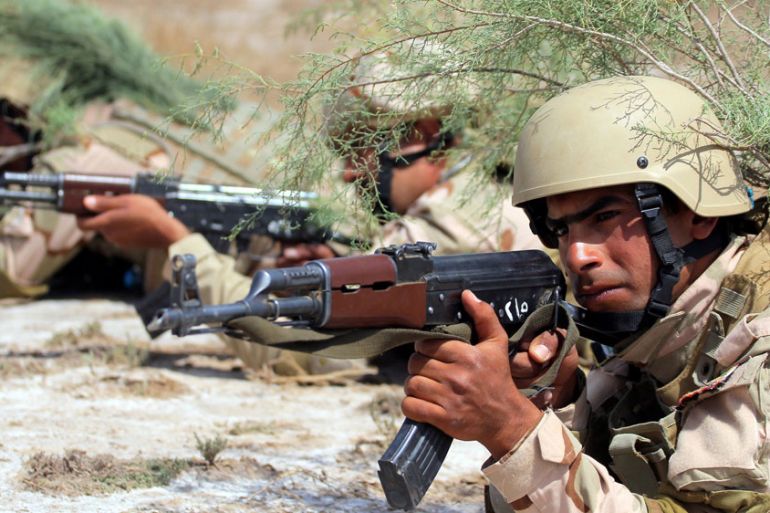What is the strategy to “degrade and defeat ISIL”?
Iraqis and Syrians caught in the middle of the conflict are waiting to know what the “complete strategy” will be.

It has been a month since Ramadi – the provincial capital of Iraq’s western province of Anbar – fell to the Islamic state of Iraq and the Levant (ISIL). I was in Baghdad at the time and remember clearly how the US administration and Iraqi government officials played down its significance.
They described it as a tactical setback. They said there were “good and bad days in any war and that was a bad day”. They also promised to recapture the city.
Keep reading
list of 4 itemsControversial law sparks fist fight in Georgian parliament
‘Prejudice, Islamophobia’: Free speech fears as UK redefines extremism
Dominican FM on Haiti gang violence crisis: Spillover threat?
Well, it has been weeks and ISIL is still as defiant as ever. There have been numerous attacks – many of which involved suicide car bombs that have killed many of Iraq’s security forces and Shia paramilitary troops in the province.
ISIL has also managed to target the Habbaniyah base – the staging ground from which the counteroffensive is being launched.
And what is worse, the counter attack is not being lead by Iraq’s army. Instead, the government has had to rely on Iranian backed Shia militias simply because the military is unable to wage the fight
ISIL didn’t just capture Ramadi. A few days later, they captured the central Syrian city of Palmyra and the last border crossing that was manned by Iraqi and Syrian government forces in Anbar.
At the time, there was criticism and calls to review the strategy of the US led coalition against the armed group.
Now, President Barack Obama says the US lacks a “complete strategy” and that Iraqis have a role to play. He talked about the need to speed up the training of the Iraqi army and to include Sunnis in the fight – statements he has repeatedly made in the past.
What is the strategy to “degrade and defeat ISIL”?
In September the White House outlined what it called “a comprehensive strategy to defeat ISIL”.
– Support an effective governance in Iraq that would address the legitimate grievances of all Iraqis
– Deny ISIL safe havens with a systematic campaign of airstrikes
– Train and support Iraqi forces
– Help the government form National Guard units that would be recruited locally and be responsible for protecting their own communities and securing their own areas
– Disrupt ISIL’s finances and the flow of foreign fighters
What has happened since?
ISIL may have lost some territory but more than 4,000 airstrikes have not stopped the group from taking new and strategic ground in Iraq and Syria.
Obama himself acknowledged the flow of foreign fighters through the Turkish border has not stopped.
Iraq may have a new prime minister who is seen to be less of a divisive figure than the former premier Nouri Al Maliki but Haidar Al Abadi’s ability to rule is in question.
He needs the military backing of Shia paramilitary groups who hold power on the ground. They have been leading the battles against ISIL because the army has proven to be weak. It did retreat in the face of ISIL’s advance in Ramadi.
Iraq’s Sunnis are still disgruntled and feel the government hasn’t addressed their demands.
They have been asking for weapons to wage the battle on their own, but opposition from some Shia politicians in Baghdad have prevented that from happening. The planned National Guard has not been approved by parliament.
That is the story in Iraq. Across the border in Syria it is even more complicated. The coalition doesn’t have a partner on the ground apart from its unofficial partnership with the Kurds in the northeast.
To ultimately degrade and defeat ISIL, it must be done on both battlefields. It also requires political reconciliation in both countries.
Iraqis and Syrians caught in the middle of the conflict are waiting to know what the “complete strategy” will be.